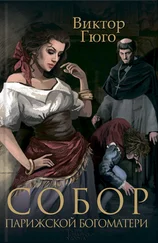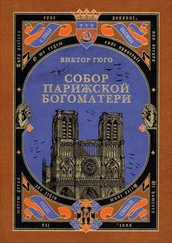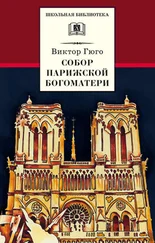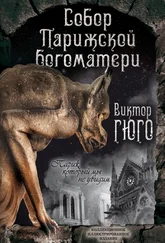| They wore neither rings nor gold crosses, and it was easy to see that, in their ease, this did not proceed from poverty, but simply from fear of being fined. |
На них не было ни колец, ни золотых крестиков, но легко было понять, что это не от бедности, а просто из боязни штрафа. |
| Their companion was attired in very much the same manner; but there was that indescribable something about her dress and bearing which suggested the wife of a provincial notary. |
Их спутница была одета приблизительно так же, как и они, но в ее одежде и во всех ее повадках было нечто такое, что изобличало в ней жену провинциального нотариуса. |
| One could see, by the way in which her girdle rose above her hips, that she had not been long in Paris.-Add to this a plaited tucker, knots of ribbon on her shoes-and that the stripes of her petticoat ran horizontally instead of vertically, and a thousand other enormities which shocked good taste. |
Уже по одному тому, как высоко она носила кушак, видно было, что она недавно приехала в Париж. Прибавьте к этому шейную косынку в складках, банты из лент на башмаках, полосы юбки, идущие в ширину, а не вдоль, и тысячу других погрешностей против хорошего вкуса. |
| The two first walked with that step peculiar to Parisian ladies, showing Paris to women from the country. |
Две женщины шли той особой поступью, которая свойственна парижанкам, показывающим Париж провинциалке. |
| The provincial held by the hand a big boy, who held in his a large, flat cake. |
Провинциалка держала за руку толстого мальчугана, а мальчуган держал в руке толстую лепешку. |
| We regret to be obliged to add, that, owing to the rigor of the season, he was using his tongue as a handkerchief. |
К нашему прискорбию, мы вынуждены присовокупить, что стужа заставляла его пользоваться языком вместо носового платка. |
| The child was making them drag him along, non passibus Cequis, as Virgil says, and stumbling at every moment, to the great indignation of his mother. |
Ребенка приходилось тащить за собой поп passibus aequis, как говорит Вергилий, и он на каждом шагу спотыкался, вызывая окрики матери. |
| It is true that he was looking at his cake more than at the pavement. |
Правда и то, что он чаще смотрел на лепешку, чем себе под ноги. |
| Some serious motive, no doubt, prevented his biting it (the cake), for he contented himself with gazing tenderly at it. |
Весьма уважительная причина мешала ему откусить кусочек, и он довольствовался тем, что умильно взирал на нее. |
| But the mother should have rather taken charge of the cake. It was cruel to make a Tantalus of the chubby-checked boy. |
Но матери следовало бы взять лепешку на свое попечение - жестоко было подвергать толстощекого карапуза танталовым мукам. |
| Meanwhile, the three demoiselles (for the name of dames was then reserved for noble women) were all talking at once. |
Все три "дамуазель" ("дамами" в то время называли женщин знатного происхождения) болтали наперебой. |
| "Let us make haste, Demoiselle Mahiette," said the youngest of the three, who was also the largest, to the provincial, "I greatly fear that we shall arrive too late; they told us at the Ch?telet that they were going to take him directly to the pillory." |
- Прибавим шагу, дамуазель. Майетта, - говорила, обращаясь к провинциалке, самая младшая и самая толстая из них. - Боюсь, как бы нам не опоздать; в Шатле сказали, что его сейчас же поведут к позорному столбу. |
| "Ah, bah! what are you saying, Demoiselle Oudarde Musnier?" interposed the other Parisienne. "There are two hours yet to the pillory. |
-Да будет вам, дамуазель Ударда Мюнье!-возражала другая парижанка. - Ведь он же целых два часа будет привязан к позорному столбу. |
| We have time enough. |
Времени у нас достаточно. |
| Have you ever seen any one pilloried, my dear Mahiette?" |
Вы когда-нибудь видели такого рода наказания, дорогая Майетта? |
| "Yes," said the provincial, "at Reims." |
- Видела, - ответила провинциалка, - в Реймсе. |
| "Ah, bah! What is your pillory at Reims? |
- Могу себе представить, что такое ваш реймский позорный столб! |
| A miserable cage into which only peasants are turned. |
Какая-нибудь жалкая клетка, в которой крутят одних мужиков. |
| A great affair, truly!" |
Эка невидаль! |
| "Only peasants!" said Mahiette, "at the cloth market in Reims! |
- Одних мужиков! - воскликнула Майетта. - Это на Суконном-то рынке! В Реймсе! |
| We have seen very fine criminals there, who have killed their father and mother! |
Да там можно увидеть удивительных преступников, даже таких, которые убивали мать или отца! |
| Peasants! |
Мужиков! |
| For what do you take us, Gervaise?" |
За кого вы нас принимаете, Жервеза? |
| It is certain that the provincial was on the point of taking offence, for the honor of her pillory. |
Очевидно, провинциалка готова была яростно вступиться за честь реймского позорного столба. |
| Fortunately, that discreet damoiselle, Oudarde Musnier, turned the conversation in time. |
К счастью, благоразумная дамуазель Ударда Мюнье успела вовремя направить разговор по иному руслу. |
| "By the way, Damoiselle Mahiette, what say you to our Flemish Ambassadors? |
- Кстати, дамуазель Майетта, что вы скажете о наших фландрских послах? |
| Have you as fine ones at Reims?" |
Видели вы когда-нибудь подобное великолепие в Реймсе? |
| "I admit," replied Mahiette, "that it is only in Paris that such Flemings can be seen." |
- Сознаюсь, - ответила Майетта, - что таких фламандцев можно увидать только в Париже. |
| "Did you see among the embassy, that big ambassador who is a hosier?" asked Oudarde. |
- А вы заметили того рослого посла, который назвал себя чулочником? спросила Ударда. |
| "Yes," said Mahiette. "He has the eye of a Saturn." |
- Да, - ответила Майетта, - это настоящий Сатурн. |
| "And the big fellow whose face resembles a bare belly?" resumed Gervaise. "And the little one, with small eyes framed in red eyelids, pared down and slashed up like a thistle head?" |
- А того толстяка, у которого - лицо похоже на голое брюхо? - продолжала Жервеза. - А того низенького, с маленькими глазками и красными веками без ресниц, зазубренными, точно лист чертополоха? |
| "'Tis their horses that are worth seeing," said Oudarde, "caparisoned as they are after the fashion of their country!" |
- Самое красивое - это их лошади, убранные по фламандской моде, - заявила Ударда. |
| "Ah my dear," interrupted provincial Mahiette, assuming in her turn an air of superiority, "what would you say then, if you had seen in '61, at the consecration at Reims, eighteen years ago, the horses of the princes and of the king's company? |
- О, моя милая, - перебила ее провинциалка Майетта, чувствуя на этот раз свое превосходство, - а что бы вы сказали, если бы вам довелось увидеть в шестьдесят первом году, восемнадцать лет тому назад, в Реймсе, во время коронации, коней принцев и королевской свиты? |

![Виктор Гюго - Собор Парижской Богоматери [Notre-Dame de Paris]](/books/30985/viktor-gyugo-sobor-parizhskoj-bogomateri-notre-thumb.webp)



![Виктор Гюго - Собор Парижской Богоматери. Париж [сборник]](/books/398980/viktor-gyugo-sobor-parizhskoj-bogomateri-parizh-sbo-thumb.webp)



